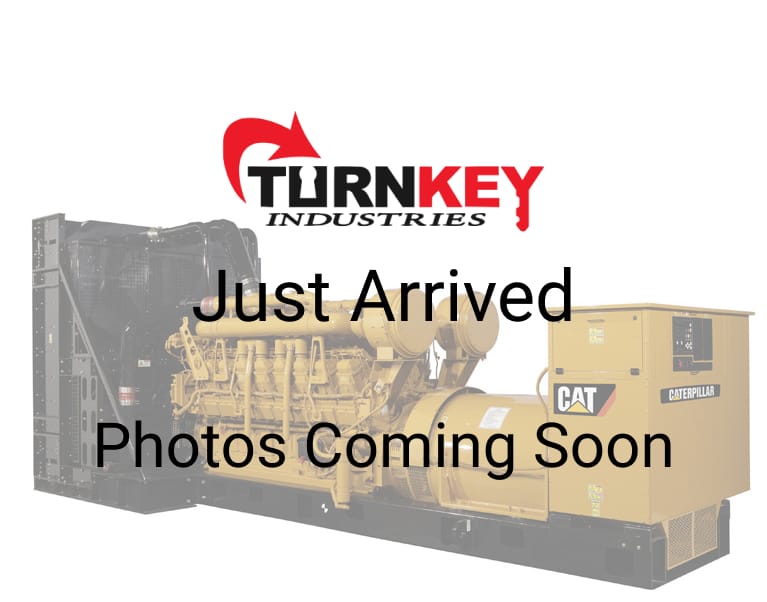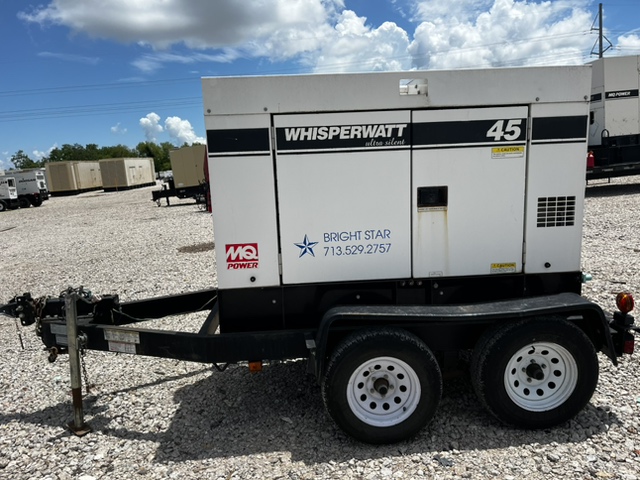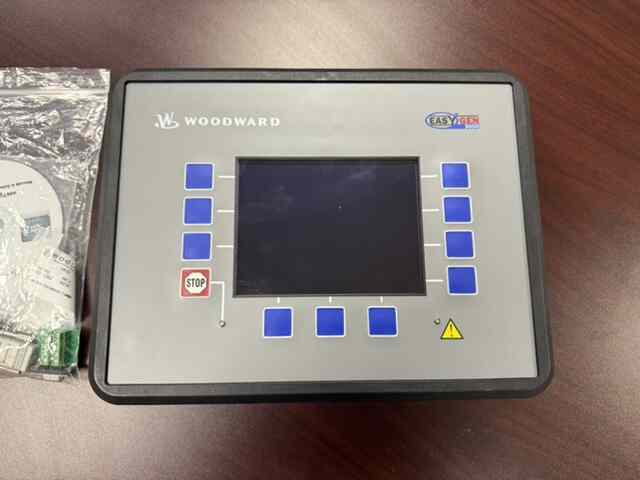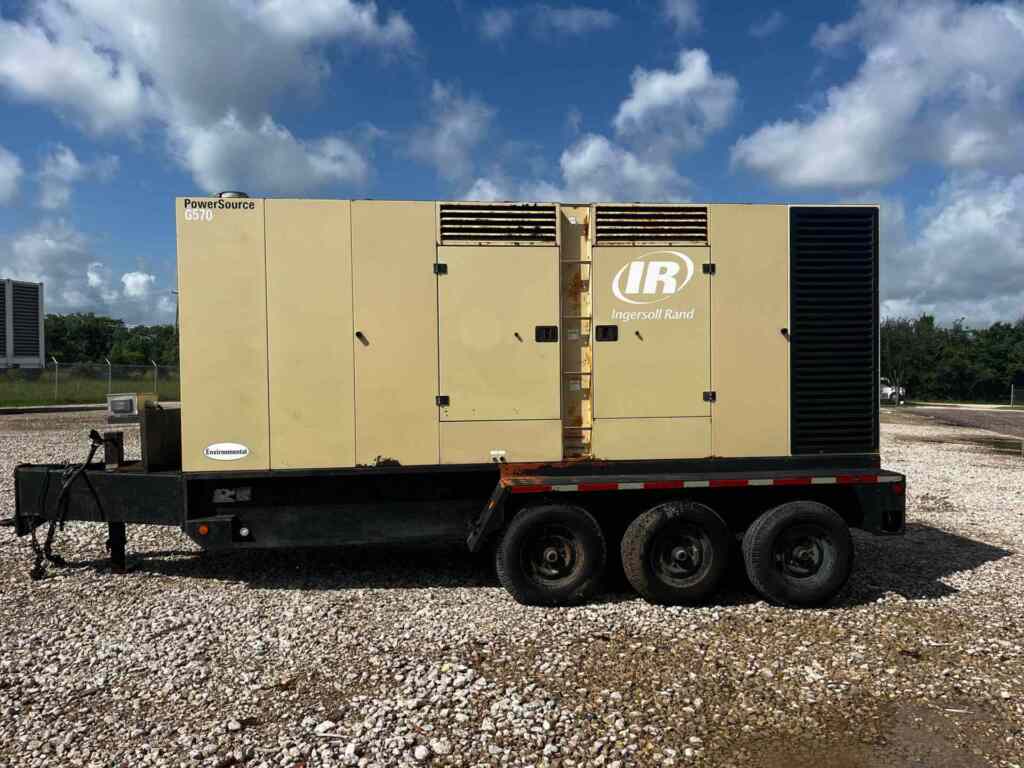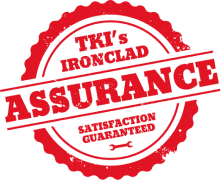Modern diesel generators used in commercial and industrial settings must meet strict environmental regulations while delivering consistent, high-output power. One of the most vital components introduced to meet these standards is the diesel particulate filter (DPF). While DPF filters are essential for reducing harmful emissions, they also influence several aspects of generator performance. From increased backpressure to maintenance scheduling and fuel efficiency, understanding the role of DPFs is key for businesses relying on commercial power systems.
What Diesel Particulate Filters Do in Generator Systems
Diesel particulate filters are designed to trap soot and other solid particles found in diesel exhaust before they leave the generator’s exhaust system. These microscopic particles are a byproduct of incomplete fuel combustion. DPFs reduce the release of black carbon and fine particulate matter, which can negatively affect both air quality and regulatory compliance.
The filter operates by forcing exhaust gases through a ceramic or silicon carbide structure that is filled with narrow channels. These channels capture particulate matter, which must be periodically removed through a process called regeneration. This process is either passive (through high exhaust temperatures) or active (by injecting fuel or using a heating element).
Backpressure and Its Effect on Generator Efficiency
One of the most significant performance factors influenced by a DPF is backpressure. As soot accumulates in the filter, the flow of exhaust becomes restricted. This forces the engine to work harder to push exhaust gases out of the system, reducing overall efficiency. High backpressure can cause:
- Increased fuel consumption;
- Engine derating or reduced output;
- Higher operating temperatures; and
- Shorter component lifespan due to thermal stress.
To avoid these issues, generator systems must be properly sized to accommodate DPFs and designed with adequate regeneration cycles. Neglecting these considerations can lead to downtime, increased maintenance costs, and lost productivity in power-critical operations.
DPF Regeneration and Operational Load Profiles
Regeneration is the process of burning off trapped soot inside the DPF. It helps maintain the filter’s function and prevents excessive backpressure. Generators that run at high loads consistently will typically regenerate passively, meaning no additional systems are needed. However, many commercial generators operate under variable or light loads, especially standby systems. These conditions often require active or manual regeneration methods.
Challenges related to regeneration include:
- Unpredictable load profiles that cause incomplete regeneration.
- Frequent active regeneration that increases fuel use.
- Operator error during manual regeneration attempts.
- The need for regeneration scheduling in critical operations.
If regeneration is not performed correctly or at appropriate intervals, soot can harden into ash, which cannot be burned off and requires physical cleaning. This leads to downtime and additional service costs.
Impact on Fuel Consumption and Engine Load
Diesel particulate filters impact generator fuel consumption in two main ways. First, the increased backpressure can reduce engine efficiency, causing the system to burn more fuel to maintain power output. Second, active regeneration cycles require extra fuel to raise exhaust temperatures. Over time, this additional consumption adds to the overall operational cost of running the generator.
While the fuel impact varies depending on the generator type and how often regeneration is needed, it can be significant in generators with heavy daily use or those serving mission-critical loads like hospitals or manufacturing plants. Operators should consider DPF-compatible generators with optimized regeneration settings or choose units designed for consistent load levels to minimize these effects.
Maintaining Diesel Particulate Filters in Commercial Power Systems
To keep DPF systems operating efficiently, a consistent maintenance routine must be followed. Failure to maintain the filter can lead to elevated emissions, system alarms, forced shutdowns, or even permanent damage to the engine or filter.
Recommended maintenance practices include:
- Monitoring differential pressure across the DPF.
- Logging regeneration cycles and tracking duration.
- Removing and cleaning the filter at set intervals (typically 1,000–3,000 hours).
- Inspecting sensor accuracy and exhaust gas temperatures.
- Using diagnostic tools to track soot levels and regeneration cycles for predictive maintenance alerts.
These maintenance activities must be factored into operational schedules and budget planning, especially in environments where uptime is critical. Regular inspection and cleaning can extend the lifespan of both the filter and the generator, avoiding unplanned repairs or premature replacements.
Compliance and Regulatory Benefits of DPF Filters
Despite the maintenance and performance considerations, DPF filters offer one major advantage: they help ensure compliance with local and federal emissions standards. Regulations such as the EPA’s Tier 4 Final requirements demand major reductions in particulate emissions, making DPF systems mandatory for most new commercial diesel generators.
Failure to comply with emissions standards can result in:
- Fines or penalties from environmental agencies.
- Project delays due to failed inspections.
- Loss of eligibility for public or government contracts.
- Environmental liability risks.
Generators equipped with DPFs not only meet these standards but can also enhance a company’s reputation for environmental responsibility, which is especially important for businesses operating in urban areas or near schools, hospitals, or residential zones.
When to Retrofit a Generator With a DPF System
For operators with older Tier 1 or Tier 2 generators, retrofitting a DPF may be the only way to meet newer emissions standards without replacing the unit entirely. This process involves installing an aftermarket DPF in the exhaust stream and updating the control system to manage regeneration cycles. While not always simple, retrofitting is often more affordable than purchasing a new Tier 4 Final generator.
Retrofitting is most viable when:
- The engine runs at consistent, moderate-to-high loads.
- Exhaust temperatures are adequate for passive regeneration.
- The system has available space for the filter and sensors.
- The application is in a regulated emissions zone.
Before committing to a retrofit, it’s best to consult with generator experts to evaluate the technical and cost feasibility of the upgrade.
Choosing DPF-Compatible Generators for Better System Reliability
Many of the concerns related to DPFs can be mitigated by selecting generators that are factory-designed for emissions compliance. Tier 4 Final diesel generators come with optimized DPF, SCR, and EGR systems that work together to minimize emissions without sacrificing performance. These units are designed with regeneration in mind and offer automated control systems to manage filter health without user intervention.
When sourcing a DPF-equipped generator, look for the following:
- EPA Tier 4 Final labeling and documentation;
- Regeneration history and diagnostic data (for used units);
- Service accessibility for filter removal and cleaning; and
- Clearance for future retrofits or component upgrades.
Working with a trusted supplier ensures that you get not only a compliant generator but one that fits your specific operational demands without creating unnecessary complexity or cost.
Why Businesses Choose Turnkey Industries for Reliable Generator Equipment
Turnkey Industries helps businesses secure dependable commercial power systems that meet modern emissions regulations while maintaining peak performance. With over 15 years of experience, Turnkey Industries supplies high-quality, low-hour industrial generators that are IronClad Certified and ready for immediate use.
Key advantages include:
- Inventory of Tier 4 Final generators with integrated DPF systems.
- Support for evaluating retrofit options on legacy equipment.
- Top generator brands like Cummins, Caterpillar, Baldor, Kohler, and Multiquip.
- Thorough inspection, servicing, and load testing on every unit.
- Fast shipping that is available both nationally and internationally.
- Servicing multiple industries, including construction, aquaculture, hospitals, utilities, and more.
For expert help selecting the right generator with emissions control features like diesel particulate filters, contact Turnkey Industries today.
 Turnkey Industries offers a variety of high-capacity
Turnkey Industries offers a variety of high-capacity 